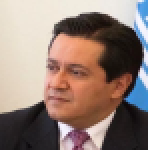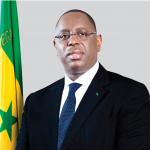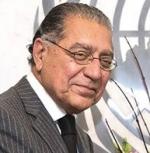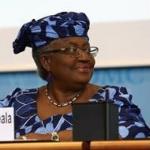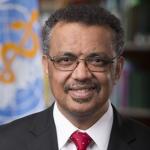Poverty and hunger are on the rise after years of decline, a trend exacerbated by the COVID-19 pandemic, and past progress in many areas of eliminating poverty in all its dimensions is facing headwinds. As many as 132 million additional people went hungry in 2020 because of the COVID-19 crisis, and it is projected that as many as 163 million additional people could be pushed into extreme poverty through 2021. The livelihoods of people living in poverty and informal workers are at risk without social protection to cope in many countries, with women particularly impacted. At the same time shrinking fiscal space in many countries further restricts options.
In the recovery from COVID-19 and its negative impacts, economic growth is necessary to lift people out of poverty, yet it needs to be much more inclusive. The critical role of social protection needs to be reinforced, while also addressing the inequalities that have been exacerbated by the pandemic including gender inequality. The loss of jobs must be urgently addressed. Additional actions are needed to transform economies and food systems to deliver on the interlinked SDGs in an integrated manner especially in growing sectors, such as green jobs and service provision, and with investments in climate-friendly agriculture and low-carbon infrastructures as well as in ICT. Scaling up successful initiatives and investments for systemic transformations is needed to eradicate poverty and hunger advancing good health while building resilience for the future. This session will examine the challenges and opportunities for ending poverty and hunger and transforming towards inclusive and sustainable economies.
Proposed guiding questions:
- What have been the key trends regarding SDGs 1, 2 and 8, and relations with SDG 17?
- How can increasing poverty and hunger be tackled while transforming economies and food systems towards increased resilience and lowered climate/environmental impacts?
- How can economic recoveries be shaped to ensure more inclusive and sustainable patterns of growth that generate decent jobs, ensure equal access to basic services and social protection, and support carbon-neutrality and a better balance with nature?
- How can food systems be transformed to deliver better nutrition for all, while improving their balance with nature?
- What are the opportunities to be realized (and pitfalls to be avoided) in the immediate and medium terms towards these ends? What kind of international cooperation is needed to provide the necessary support?
- What are ways to combat poverty and hunger and respond to the COVID-19 crisis and its impacts that enable more inclusive, equitable, resilient and sustainable development?
- How can policies in those areas support gender equality?
Chair:
- H.E. Mr. Munir Akram (Pakistan), President of Economic and Social Council
Keynote address:
- H.E. Ms. Sania Nishtar, Federal Minister and Special Assistant on Poverty Alleviation and Social Safety to the Prime Minister of Pakistan
Highlights:
- Ms. Maria-Francesca Spatolisano, Assistant Secretary-General for Policy Coordination and Inter-Agency Affairs, UNDESA, presentation of Good Practices in the implementation of SDGs
- Presentation of the report of the Secretary-General on progress towards the SDGs - Goals 1, 2, 8 and 17: Ms. Yongyi Min, Chief of SDG Monitoring Section, Statistics Division of UNDESA
Interactive panel discussion
Moderator:
- Ms. Gerda Verburg, Coordinator at Scaling-Up Nutrition (SUN) Movement
Panellists/Resource persons:
- Mr. Gilbert F. Houngbo, President of the International Fund for Agricultural Development
- Mr. Guy Ryder, Director General of the International Labour Organization
- Mr. Aloysius Ordu, Head of Africa Growth Initiative, Brookings Institution, Former Vice President of the African Development Bank
- Ms. Katherine Richardson, Professor, Biological Oceanography Globe Institute, Leader Sustainability Science Centre, University of Copenhagen
Lead discussants:
- Mr. Maximo Torero, FAO Chief Economist
- Mr. Olivier De Schutter, UN Special Rapporteur on extreme poverty and human rights
- Mr. Eric Manzi, Deputy General Secretary of the African Regional Organisation of the International Trade Union Confederation (ITUC-Africa), Rwanda (Workers & Trade Union Major Group)
- Ms. Ruramiso Mashumba, Director and Founder of Mnandi Africa, Zimbabwe (Business & Industry Major Group)
Respondents:
- H.E. Mr. Lassané KABORE, Minister of Economy, Finances and Development of Burkina Faso
- H.E. Ms. Meryame Kitir, Minister for Development Cooperation of Belgium
- H.E. Ms. Silvana Eugenia Vargas Winstanley, Minister of Development and Social Inclusion of Peru
- H.E. Mr. Thanawat Tiensin, Chairperson of the Committee on World Food Security, Permanent Representative of Thailand to the Rome agencies
 Welcome to the United Nations
Welcome to the United Nations
